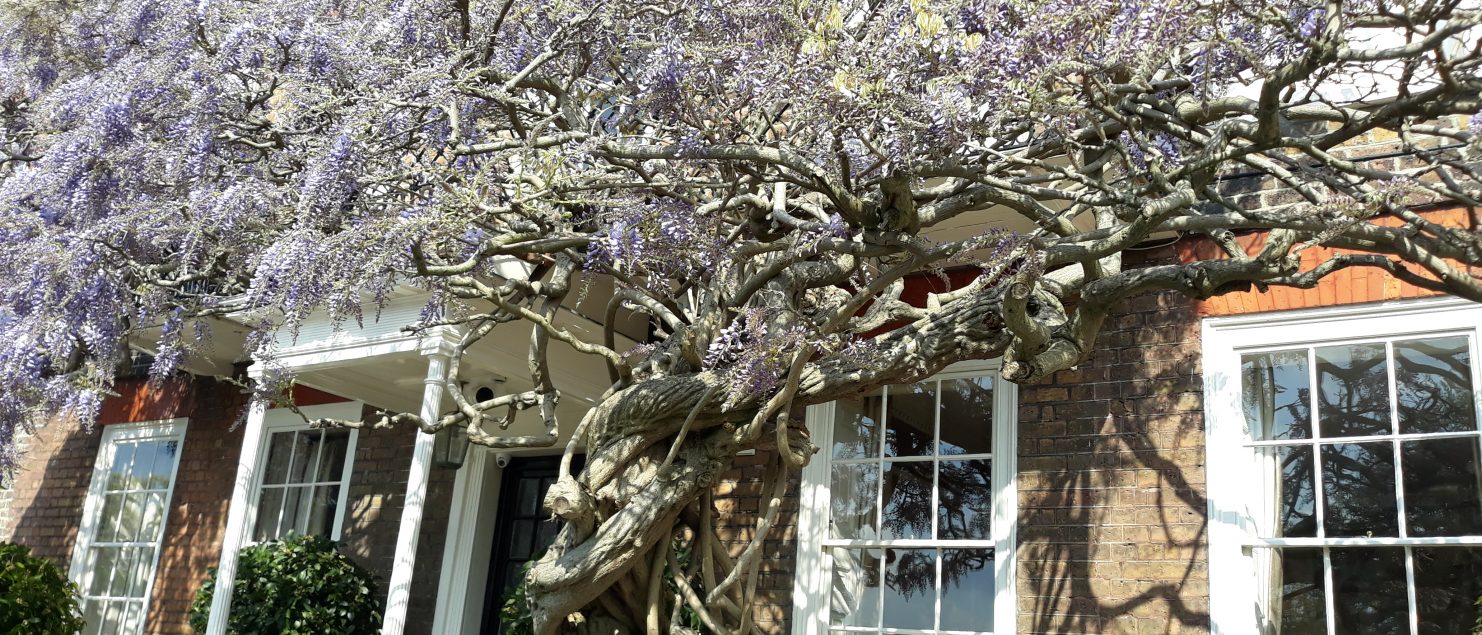Five New Poems by Julith Jedamus
Loosestrife
High summer. River on the flood,
bringing news of the sea. Tides
blur the river’s cursives, carry
gulls and bottles upstream, ferry
messages of fresh destruction,
tidings for a land weighed down by its own
fecundity. Cormorants sway in muddy
currants, dive for eels or pearls as I
count the seconds of their drowning: trees
(or bodies) float past, heads (or buoys)
glide by—until they reappear,
in pairs, sleek with oil or water,
beaks aimed upstream. Safe in my lair,
hidden by sprays of ash and alder,
I breathe lost scents of may and mother-die
and lie in wait for the longest day as high
clouds pass, dragging shadows heavy
as gunmetal. If I could be free
as loosestrife, the violet paradox
that waves beside me, its lax
habits and rampant ways pleasing to all
but the ecologist, who sees its purple
crowds and thinks ‘invasion.’ Yet I,
like the butterfly, am prone to suasion, and comply
when beauty’s argued. I sway on its red
stems, which rise above the flood,
offering admirals and strays
refuge and temporary grace.
***
Heron Tree
Widespread plane, whose limbs hold
seven nests, I recall your April liveliness,
when errand seekers launch themselves
on quiet wings and return to audible clamour . . .
Down falls through tiers of branches
and settles on bramble or bracken: a sign
that life’s within, that the wheel still turns.
Autumn burns. Ivy steals the colour
from red skies, the mouth fills with smoke,
the mind searches for lost herons, grasps
the memory of their flight: the graceful
stretch of feet toward mirrored water, the quiet
splash as wings fold and settle, the swivel
of neck and beak, the inhuman questing.
An east wind rises. Light retreats
by stealth. Leaves fall, scatter the last
news of summer: letters kept
in a drawer of days, swept by the mind
into yellow heaps stolen from myth
and fairy tale. I spread them with weak hands,
lie all night on their negligible weight.
First light. Spring tides
cancel sandbar and shore, devour
path and footprint as the Thames glides
westward, bringing news of the sea,
threatening to drown my fragile home
while high above me herons watch, eyes
uncompromised by wonder or pity.
***
Buddleia
Standing by road and railway,
you flaunt your modesty, wave
dirty handkerchiefs at bankers
and brides. From Clapham to Vauxhall
you spring from gritty soil, gay
flaneur leaning on gantries,
dusty beggar glad for a candy wrapper
or a half-smoked fag. Dressed in drag,
provoked by breezes, you display mauve
tapers to rent-boys and engineers.
I’m inclined to invite you on board,
to watch you sway in a first-class window,
to feel your grey-green leaves brush
my shoulder. Rough sleeper, busker with a sore
throat and a stash of coins, I’d sow
your seeds from St Ives to Dundee; I’d talk up
your qualities to pets and ticket inspectors.
On summer dawns, when the moon cools
fell and fen, I’d stroke your stems as you exhale
dreams and oxygen. Bold dissenter,
wayward cousin prized by butterflies,
lean this way and whisper the secret
of your rebellious grace.
***
Second Bloom
Long after the first flush,
when purple racemes hung
from bare bines in April,
declaring spring in Chinese characters,
your wisteria bloomed a second time,
less profusely but twice as welcome,
coming after long confinements
personal and general, hiding
its fragrant blossoms in groves
of pinnate leaves held high by human stems
twining counterclockwise,
wrists and arms aged by sun and weather.
Second blooms, second chances,
second weddings and waves:
joy and misfortune intertwine
as stars wheel over the Thames
and constellations made invisible
by the sun describe their arcs—
Gemini preceding Cancer,
Cancer following. Tendrils sway
in morning breezes; light grows.
At seven, by The Dove, we saw
two swimmers enter the river,
towing two orange buoys behind them.
***
Wind
Wind’s insinuations
are clear to cheek and ear;
it grazes faces, invites
closed eyes to hear
its green interpreters:
beech’s rustle, willow’s
pour, the sharp sail-
snap of plane and sycamore.
Even here, where brick
and glass enforce our isolation,
wind’s persistent, cunning
as contagion. On cold
spring mornings, it seeks gaps
and cracks, finds weaknesses,
drives its icy message
through panes and bones.
Before, in the unlocked
world, wind kept its distance,
masked by traffic and planes.
But now, in this new silence,
wind fills interminable days,
vies with fear as our prime
diversion and occupation.
Who ever had the time
to watch hawks riding
thermals, or see wind’s
lacy authority sketched
on lakes and rivers? Hours
are spent listening to taps
and rattlings, supernatural
comings and goings that tell
of wind’s internal weather . . .
When we row, wind
lurks in your corner, knocks
me over as others cheer:
unseen enemies, neighbours
who are far from fair-minded.
I pick myself up, howl
like a hurricane. My mind
is synonymous with wind.
***
A novelist, poet and editor, Julith Jedamus was born in Colorado and has lived in London for the past 26 years. Her collection The Swerve was published by Carcanet in 2012.

2 Comments
Join the discussion and tell us your opinion.
What beautiful and elegant poems. I live in California and am grateful to see a different kind of verve.
I love your poetry. Chloe Davies is my beloved niece. I am a guardian of the Leg o Mutton reservoir where we have 61 bird species this year. Keep writing your wonderful words in these uncertain times. Nature beckons and smiles.